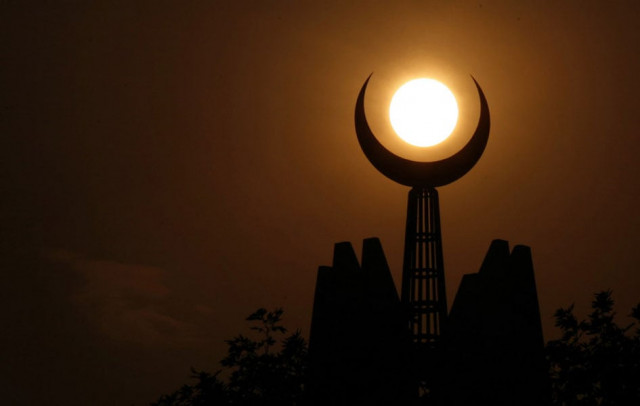The drum beats at dawn
With time and innovation, the number of drum-beaters has decreased

Hearing the sound of drums in the quiet of the night is normally considered a cause of alarm—but this is not the case during the holy month of Ramazan.
According to one legend the practice of using drums to wake people up for Sehri (the meal before fasting commences) first began in 1936. It then became rampant throughout the subcontinent.
In Pakistan, the practice of using drumbeats to wake people up at the crack of dawn for
Sehri dates back to the pre-partition era, since back then devices such as an alarm clock were not available. Even today, many streets in villages, towns and cities across the country echo with beats of drums, canisters or tins before the morning prayer to help people wake up for fasting.
The streets are abuzz with various types of Sufi poems or Naats which are recited along the beat of the drum.
Most Pakistanis are also familiar with the drum beaters announcing, “It's time to wake up; those who fast are rightfully entitled to paradise”.
In the past, various groups of people used to participate in the tradition of ‘drum-beating’ in every village or town. One such individual was 70-year-old Sheikh Ghulam Nabi. He served as a drum-beater in Lahore throughout his life and it his “ancestral profession”. Nabi recounts his elder brother Sheikh Ghulam Rasool also used to do the same work. A few years ago, his elder brother was crossing the road while beating the drum at night when a car hit him from behind, leaving him dead on the spot. Even after the death of his brother, Nabi didn’t abandon what he considers to be his duty and continued drum-beating. The veteran drum-beater added that he wakes up at two in the morning and goes round the whole area with his drum, waking people up by reciting Naat and making announcements. The night before Eid is special as he goes out beating the drums for one last time, signalling his demand for a reward against his service throughout the month.
Nabi says that people willingly give money, clothes, rations and donations. However he also pointed out that people are not as enthusiastic as before. While some don’t see a point to this ritual; others are bound by the inflation which prevents them from offering anything to the drumbeater.
With time and innovation, the number of drum-beaters in the city has decreased. These individuals now prefer opting for other fields. For example, Ghulam Murtaza, son of the veteran drum-beater Sheikh Ghulam Nabi, has formed his own drum group in the city, but he makes his living by playing drums at wedding parties.
There are only a few neighborhoods left in Lahore where the sound of drums or canisters is considered normal during Ramazan.
Moreover, the new generation, in particular, is not aware of the tradition.
Saeed Ahmad Cheema, a resident of Lahore says that waking people up by playing the drum is a tradition that reminds him of his childhood, when people lived a simple life. In those days, the status of the drum was like an alarm. People used to wake up hearing the sound of drum and prepare for Suhoor. Now there are requirements of modern time, people don't need to wake up by street drumbeats.
Recently, new traditions related to Ramazan have emerged in the city. For instance, young boys are seen playing cricket all night on the streets. Adding to that, late night tea houses in the city remain crowded till the crack of dawn. In this modern scenario, many find the sound of a drum or a canister pointless and even annoying. Those opposed to the tradition also claim that children and sick people are disturbed by the sound of drums at night.
On the other hand, there are some people who are trying to keep this tradition alive for the sake of tradition and keeping this ancient occupation alive.
Published in The Express Tribune, April 1st, 2024.


















COMMENTS
Comments are moderated and generally will be posted if they are on-topic and not abusive.
For more information, please see our Comments FAQ